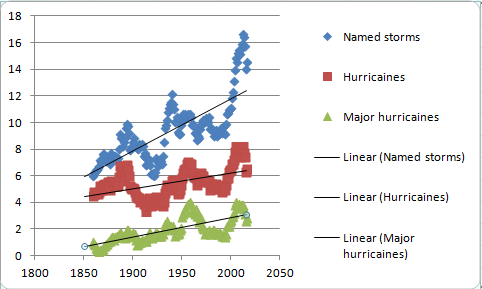The data is all garbage.
How does anyone measure the "temperature" of the world?
By taking hundreds of thousands of measurements from hundreds of thousands of different locations and averaging them out over time.
Using land stations to collect data
And satellites, ships, buoys, balloons and even aircraft.
there are huge gaps that are "assumed" and stations in tropical regions skew the results.
There are gaps. These are known about, not "assumed".
Guess what though? Climatologists and other earth scientist KNOW the record isn't perfect, and they work hard to make it better.
Skeptics help, by pointing out when things aren't right.
Also, I'd like to see you back up the claim that "stations in tropical regions skew the results". An
actual scientific source, with references that are checkable, not something from the denialsphere.
According to you. According to those who are actually informed about these things, and study climate for a living, it's not rubbish at all.
Who to trust though? A random, conspiracy theory inclined member of a discussion board, or pretty much the entire edifice of academia, public and private research organisations globally, backed up by check-able empirical evidence?
Nobody can predict the "temperature" or the "trend" of the world.
Sure they can, they predict it all the time. Its a question of whether they predict it correctly or not.
Initial predictions, those made in the 1980s and early 1990s, were not very good. Some wildly overestimated warming, others predicted cooling.
As more and more data is pooled, and more and more is understood about climate and the various interactions between forces, then the predictions get more and more accurate.
Will they ever be perfect? I'd say no. Will they be accurate to a very small margin (say +/- 1% or lower), I'd say, yes we'll get there eventually.
If you don't believe me, look at how they measure it (some of the stations are in places where it reaches 134F)
There are also places where it gets to minus 128.6 °F
So what's your point?
You realise there are stations pretty much EVERYWHERE there are people, and a lot of places where there aren't?


